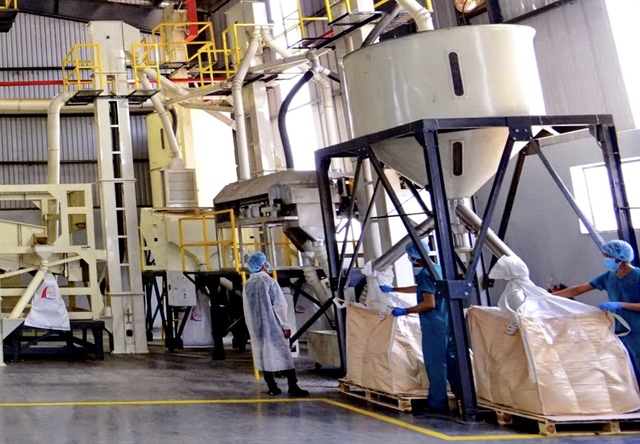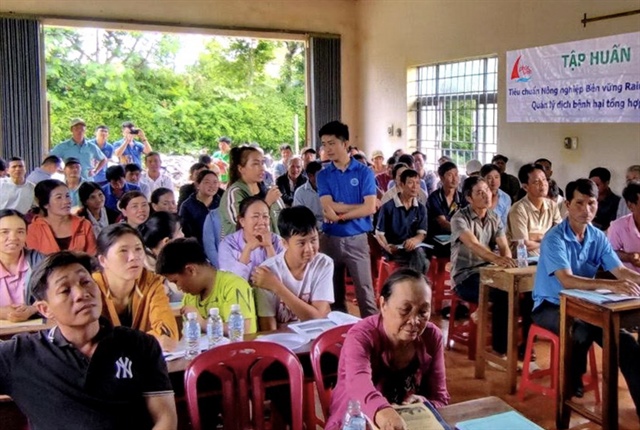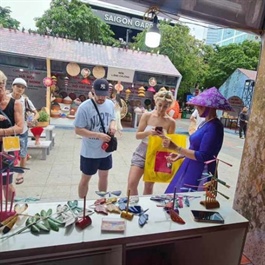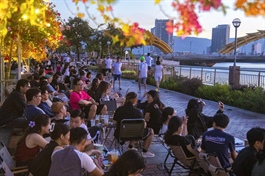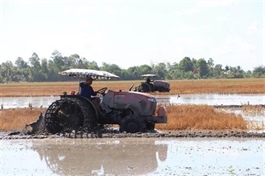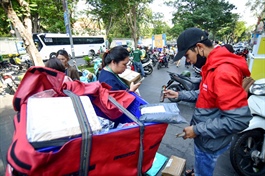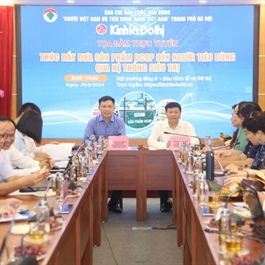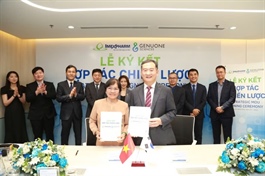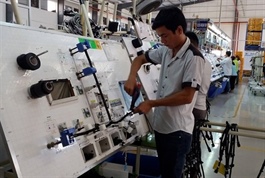ESG helps Vietnamese farm produce conquer EU market
ESG helps Vietnamese farm produce conquer EU market
Environmental, social, and governance (ESG) reports serve as a crucial tool for Vietnamese enterprises to showcase their commitments to long-term sustainability and social responsibility to investors, customers, and other stakeholders.
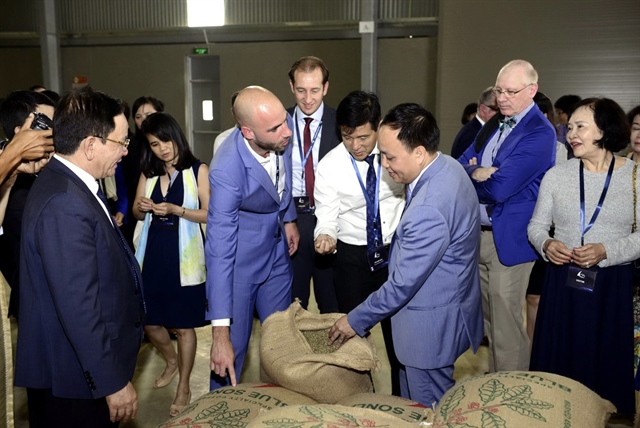
International investment funds and partners in the EU tend to prioritize their investment in ESG-certified firms. Photo: T.Y. |
To get loans from international credit institutions, many local companies have shown an ESG report.
ESG practices are considered an ‘entrance ticket’ for farm produce in the European market, according to some experts.
Phuc Sinh Corporation has obtained a US$25-million loan from SAIL Investments’ Netherlands-based & Green Fund, making it the first agricultural company in Vietnam to secure lending from the Dutch investment fund.
The key to its success is its ESG consideration.
Phan Minh Thong, chairman of Phuc Sinh, told Tuoi Tre (Youth) newspaper, that an ESG report is meant to detail the operations of a company related to environmental, social, and governance spheres.
“Many firms are publicizing ESG reports as a way to display their capacity and corporate culture to seek loans," Thong said.
“We first paid attention to ESG in 2008 and started implementing ESG practices in 2010.
“We worked with several ESG organizations 14 years ago.
“Dedicating some years to pursuing ESG, the firm was certified sustainable in 2014, which helped us grasp opportunities to access loans and expand operations."
He took into account ESG practices due to requirements from his partners, he elaborated.
“In 2008, I sold Vietnamese farm produce to a company in the Netherlands, and then the company vended the products to another enterprise which required that 50 percent of the items on sale be certified by 2015,” Thong said.
“To meet the customer’s requirement and earn more money, I began to pursue an ESG approach.
“In fact, I have earned more profits from certified products and could secure cooperation with more customers as a result."
In discussing his success with ESG practices, he shared that many international credit institutions have conducted on-site surveys at farms and cultivation areas to assess quality and ensure compliance with ESG standards.
He also pinpointed three decisive factors behind the success, including orientation, patience, and capital.
|
|
| Employees are at work at a pepper processing factory in Vietnam. Photo: T.Y. |
ESG requires long-term efforts
Phuc Sinh always puts its first priority on environmental protection, while its production and processing factories are equipped with wastewater treatment systems.
“ESG is a long journey, not a finish point,” Thong said.
He added that he has been extracting part of his company’s profits to invest in the environment.
Thong advised local firms to start with securing Global Good Agricultural Practice (GAP) and GlobalGAP certificates before following the ESG standard if their financial health is not strong enough.
He explained that to get a loan from investment funds in Europe, firms must move toward sustainability.
Bringing Vietnamese farm produce to global market
Since the COVID-19 pandemic ended, the majority of enterprises worldwide have attached great importance to agriculture and food, while Vietnam has an abundance of farm produce.
Vietnam annually turns out billions of U.S. dollars' worth of coffee beans, rice, pepper, coconut, and cashew.
Many international groups have entered the Southeast Asian nation to tap its agricultural wealth, while looking for opportunities to cooperate with local food firms.
The European Union is one of Vietnam’s main forestry-agro-fishery buyers.
Particularly, since the Vietnam-EU Free Trade Agreement took effect in August 2020, Vietnam’s farm produce export to the EU has posted impressive growth.
The potential of Vietnamese farm produce exports to the selective market remains huge, Thong said.
However, the EU market has constantly changed its requirements on food safety and plant quarantine, and it is now focusing on green agriculture transition.
Therefore, local producers and exporters should flexibly meet the standards on sustainable export and food safety.
Thong noted that Vietnam has not upgraded its product quality standards in the past 30 years, resulting in local agricultural firms being undervalued and struggling to secure international loans.
Many countries have adjusted their standards on product quality to make their products suit global consumers.
South Korea and Taiwan are applying European quality standards.
|
|
| To succeed in making an ESG report, both firms and farmers must understand and comply with the ESG approach. Photo: T.Y. |
Investing in ESG an inevitable trend
The EU imports some $290 billion worth of agro-forestry-fishery products each year, according to a representative of the Department of International Cooperation under the Ministry of Agriculture and Rural Development.
The EU is not only a promising market but it also acts as a gateway for Vietnamese farm produce to make inroads into other nations and regions.
However, only rice and rubber among agricultural products have been registered as national brands.
Meanwhile, over 80 percent of Vietnam's seafood and agricultural exports to the EU remain unbranded nationally. Instead, these products are labeled as EU goods, which has led to the low visibility of Vietnamese farm produce in the market.
ESG a competitive edge in sales
Dang Bui Khue, director of sustainability at TUV NORD Vietnam, observed that while Vietnamese enterprises are producing ESG reports, they often lack appeal.
He attributed this to a limited understanding of the ESG approach among these firms.
"Many major markets, such as the EU and the United States, are prioritizing ESG-certified products, so companies with ESG certification will have a competitive advantage," Khue explained.
However, to gain an ESG certificate, firms must pour much money into its infrastructure, workforce, social programs, and development of supply chains, he added.
Nguyen Van Thu, director of Dong Nai Province-based GC Food JSC, said that the firm is pursuing ESG practices, but “not until 2025 will it be certified.”
Khue acknowledged that obtaining ESG certification is challenging, explaining that the process demands financial stability, the hiring of consulting firms, and the implementation of effective material-saving and environmental protection measures.
Ye, he emphasized that ESG certification provides companies with a significant sales advantage.


